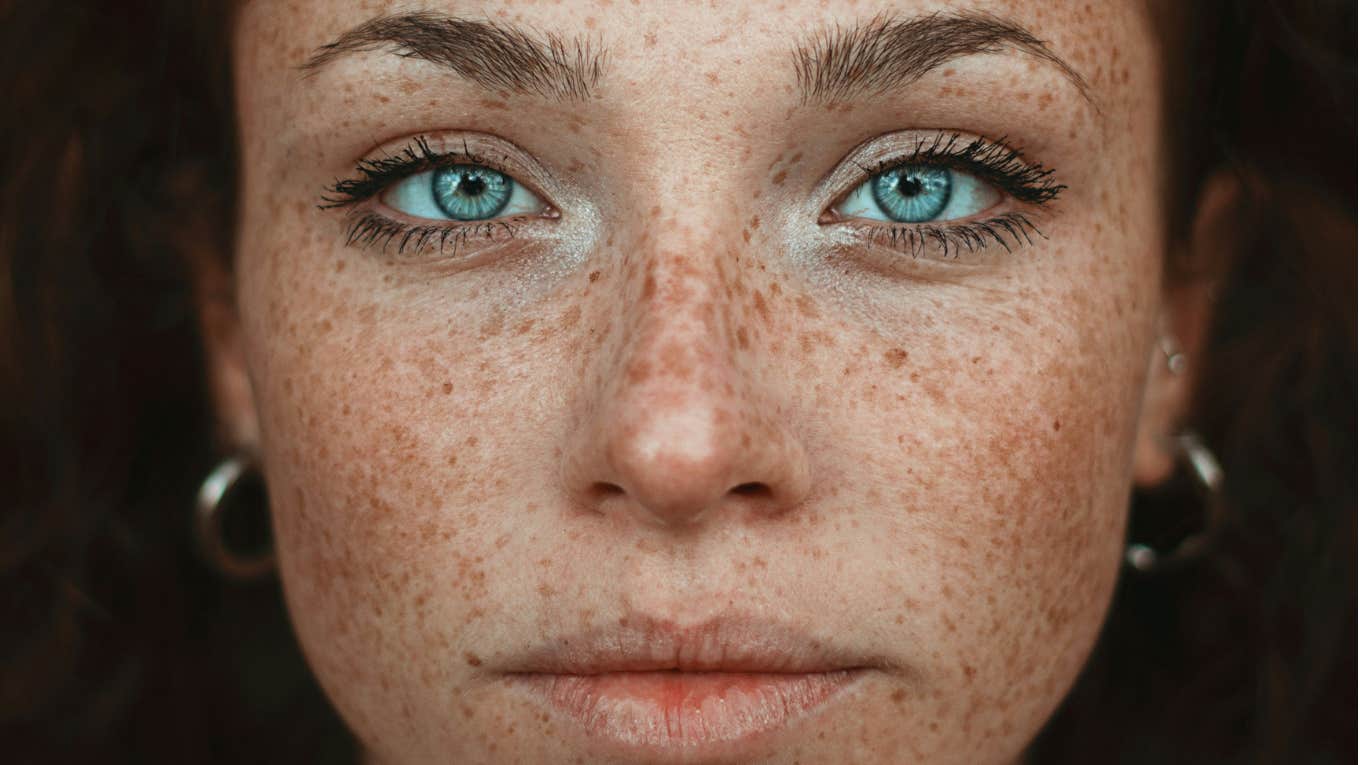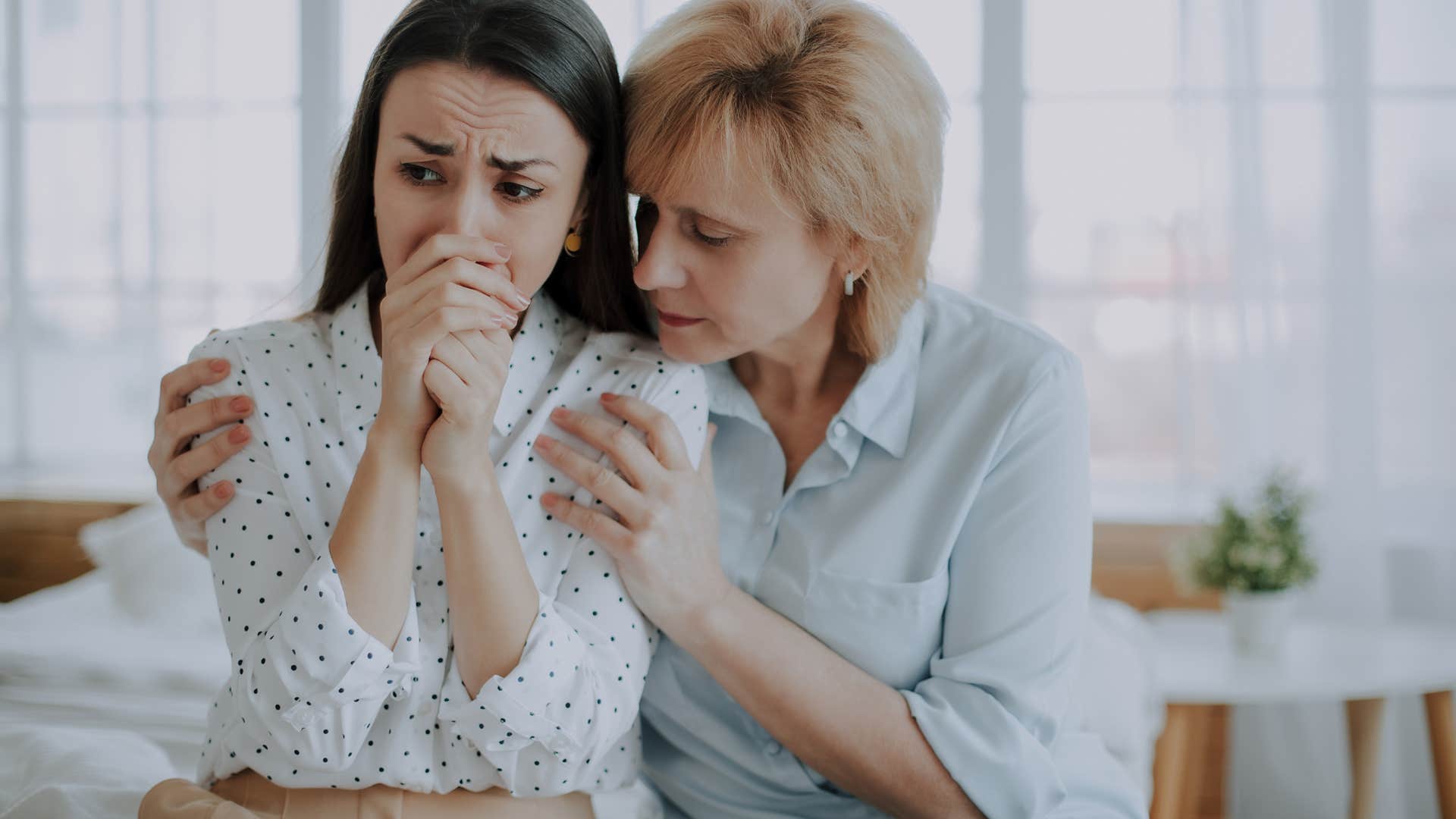5 Things Your Parents Did That Felt Like Love Growing Up — But Were Actually Deeply Unhealthy
They meant well, but some of those 'loving' parental behaviors may have done more harm than good.
 Mahdi Pourarab | Unsplash
Mahdi Pourarab | Unsplash Parents want to love and care for their children and provide the best in the world. Yet, a parent can get too close to their child emotionally. This is when the child becomes the emotional support system for their parent in a reversal of roles.
This role reversal does long-term damage to the emotional development of the child. One study concluded that this dynamic can hinder a child's development of a secure sense of self, leading to challenges in adulthood related to trust, intimacy, and self-identity.
Here are five things your parents did that felt like love growing up, but were deeply unhealthy:
1. They made you feel insecure
 fizkes / Shutterstock
fizkes / Shutterstock
One of the sad repercussions of an emotionally immature parent is an insecure attachment style in the child's adult relationships. They may reveal too much or too little to a partner, be too clingy, or, conversely, flee intimacy.
This in childhood often blunts the ability to set healthy boundaries on relationship equality. Victims may both crave and fear vulnerability because they were never allowed to be children, and worry someone will take advantage of their vulnerability the way their parent(s) did.
— Dr. Gloria Brame, therapist
2. They made you their primary emotional confidant
 My Ocean Production / Shutterstock
My Ocean Production / Shutterstock
When an adult child and parent develop a friendship, the line between a healthy friendship and a parent/child relationship is drawn by the presence of appropriate boundaries and mutual respect for independence. In a healthy relationship, you need:
- Mutual Support: The parent and adult child provide emotional support to each other without over-reliance or excessive emotional burden.
- Boundaries: Each respects the other's need for privacy and personal space, and boundaries are clear and respected.
- Independence: The adult child is encouraged and able to maintain their relationships and make independent decisions without feeling obligated to prioritize the parent's emotional needs.
In contrast, this occurs when the parent treats the adult child as a primary emotional confidant in a way that is overwhelming or inappropriate, hindering the adult child's ability to form mature relationships.
— Erika Jordan, Dating Coach / NLP Practitioner
3. They made you feel responsible for their choices
 Perfect Wave / Shutterstock
Perfect Wave / Shutterstock
Object relations theorist Ronald Fairbairn explained how the attachment processes in abused children necessitate the use of dissociation to preserve the good deified parental object. This strategy is crucial to the abused child’s survival. The unbearable betrayal of abuse and rejection must be walled off and denied.
Consequently, the child blames themself to preserve the parent as good and humane. The child believes their badness is responsible for the caregiver’s cruelty. This offers false hope necessary for survival.
— Reverend Sheri Heller, therapist and author
4. They treated you as their main source of love
 TetianaKtv / Shutterstock
TetianaKtv / Shutterstock
Parents who treat their child as their major source of love and support, and who chronically present themselves as helpless and fragile. They stunt their children, who grow up thinking it is not okay to take care of themselves and advocate for themselves in the world. The children often feel guilty if something good happens to them.
— Dr. Aline Zoldbrod, psychologist and author
5. They made you dependent on them
 fizkes / Shutterstock
fizkes / Shutterstock
I know one guy whose mother calls the shots on him for everything. They tell him where to work, and what to eat, and make a point to tell him he's not allowed to live away from them.
Sounds fine, until you hear that he's 40 years old and not 18. I'm convinced that this kind of "failure to launch" is a sign that emotional abuse is happening.
— Ossiana Tepfenhart, writer and editor
Parents strive to the best of their ability to provide for their children, and many parents struggle to satisfy their children's needs. Parents can feel the drain of this struggle and need outside support.
Some parents will turn to their children for that emotional support. When this becomes a habit, the child is parentified and put in the position of a spouse; the effects will resonate throughout all future relationships of the child.
The parents' emotional needs are important, but it is not the child's responsibility or ability to provide that type of support for their parents.
Will Curtis is YourTango's expert editor. Will has over 14 years of experience as an editor covering relationships, spirituality, and human interest topics.

